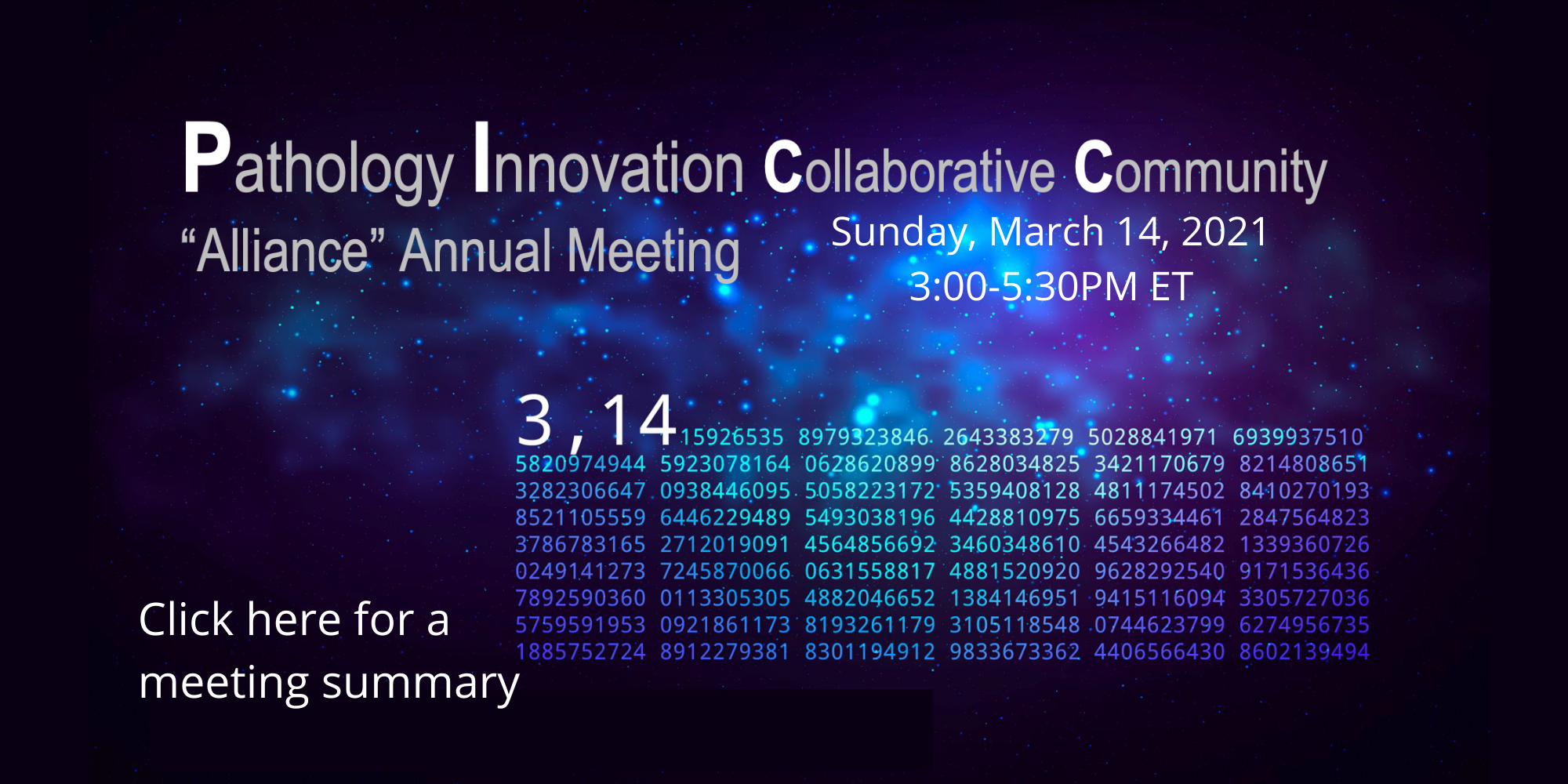Continuous Learning
A better understanding of how to verify and validate continuous learning algorithms is needed. At this time there are none authorized for Digital Pathology by FDA. There is currently too much uncertainty around the least burdensome approach for verification and validation as well as testing for continuous learning algorithms. We are looking for initial input from stakeholders on general principles for verification and validation testing for increased efficiency and access. One outcome of this workgroup is a whitepaper outlining how to validate, verify, and/or achieve interoperability.
Key Elements, Next Steps, Timeline
Use cases, start with QC/aid of pathologist, already cleared IVDs and describe clinical benefits and possible user concerns (timeline)
Use current two guidances for changes, i.e. general modification guidance, and software modification guidance, FDA draft action plan for regulatory framework and timeline
Use CADe and CADx + use RWD + timeline
Use differences between radiology & digital pathology
Use Pre-submission and mock submission paths
Use of MDDT to create: a validated reference dataset (including clinical outcome data)
Concerns & Problems
Pathologist will not review the image, HCP adoption, R&D and Class III
Feature picked by AI is different versus pathologist clinical (need RWD and clinical outcome data), R&D and regulatory
Reimburse concerns for patient, clinical, R&D and regulatory
Value Proposition
Global access
Reduce time to market
Reduce costs
Reduce submission risk
Increase accuracy and precision in Dx
Increasing precision medicine (right Dx and Rx for patient)
Implications & Efforts
Clarity on regulatory pathway - retrain and how often to release
Continuous learning implementing in RWD
Retraining versus self-learning - using different data, need quality data - pre-specify changes
Current Projects
News & Updates
Relevant Publications
Coming soon
Group Leader
Esther Abels, MSc
Esther Abels has a background in bridging R& D, proof of concept, socio economics and pivotal clinical validation studies used for registration purposes in different geographies, for both pharma and biotech products. She brings to Visiopharm a wealth of regulatory and clinical experience specializing in bringing products to clinical utility. She played a crucial role in getting WSI devices reclassified in USA. Esther currently also leads the Digital Pathology Association (DPA) Regulatory and Standards Taskforce and FDA collaborations to drive regulatory and standard clarifications for interoperability and computational pathology in the field of digital pathology. She is also a co-founder of the Alliance for Digital Pathology. Esther holds a MSc in Biomedical Health Science from Radboud University Nijmegen.



